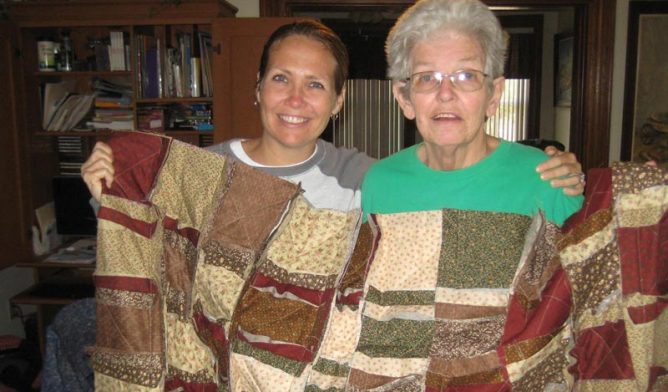Dealing with Mesothelioma Recurrence: Pick Up and Move On
Cancer & CaregivingWritten by Emily Ward | Edited By Walter Pacheco

When I first met my medical oncologist, Dr. David Jackman, he told me my mesothelioma would never fully go away.
It was always going to be there and could return — in full force — at any moment.
When I went into remission for the second time, and Jackman told me the cancer was unnoticeable on scans, part of me knew it was just a matter of time.
I was a month away from having two years of clean scans when I received the news: Tumors had returned near one area of my heart. Even worse, two additional spots were showing on the CT scan — one in the front of my chest wall and one in the muscle on the side of my chest wall.
The mesothelioma was back, and it had spread.
Your mind starts to wander in these situations. How quickly will it grow this time? What triggered it? Will the same treatments work?
Muscle pain and tightness in my chest alerted me that something may be wrong. I’m counting it as a blessing that I was proactive and had it checked out, rather than waiting until my next scheduled scan and writing the pain off as an unrelated condition.
I must admit that the initial news of recurrence was a kick in the gut. But I equate it to my dog jumping in my lap. It’s surprising at first, but then it’s over. You pick up and you move on.
Bad Reaction to Chemotherapy This Time Around
I started my third round of chemotherapy — my first session in nearly two years — two days after the Super Bowl. I had to navigate closed streets and traffic from the New England Patriots’ parade in Boston as I found my way to Dana-Farber Cancer Institute.
This Mainer was more nervous about dealing with all the commotion from the celebration than getting the chemo drugs pumped into my veins.
I received the same drug (Alimta) and same dosage as my previous two rounds of chemotherapy. For whatever reason, this one didn’t go as well.
After the first session, I experienced extreme fatigue, chills, dizziness and flu-like symptoms that lasted three or four days.
The next session, three weeks later, was even worse. I could barely get out of bed for more than a week. I couldn’t keep down food. I was just sleeping all the time.
I knew something had to change. I spoke with Dr. Jackman and he agreed we could postpone the next session. If the side effects don’t get better, we’ll move on to other options, including taking the immunotherapy drug Keytruda.
Maintaining Quality of Life
In my first meeting with Dr. Jackman after my recurrence, I brought up a treatment option we’d never discussed before.
What if I did nothing?
My brother — who accompanied me to the appointment that day — looked surprised when I asked that question. Jackman, who I respect for being a straight shooter, told me I’d have six months to a year.
I decided that wasn’t long enough, and we began discussing treatment options.
A third round of Alimta was the logical first choice, since it seemed to be effective the first two times. I’m at the point where I’m willing to try other treatments such as immunotherapy, but only with the caveat that I maintain a good quality of life.
I want to continue to work my three part-time jobs. I want to continue to spend quality time with my family and friends and do all the things I enjoy.
I’ll take quality over quantity any day. The way I felt after my last chemo treatment, I nearly said to call hospice, because I felt that bad.
Will I continue treatment if that’s how I’m going to feel? Absolutely not.
If I can continue to live the life that makes me happy, I’m OK with it. A little discomfort or inconvenience related to side effects is not a big deal.
If it’s going to cause side effects that interfere with how I live my life, that’s not acceptable. When I dismissed the six months to a year, it was with the mindset that I would still be able to work and live the way I want.






